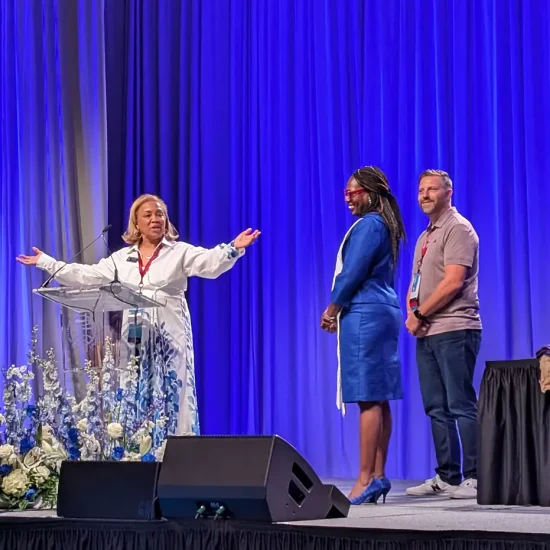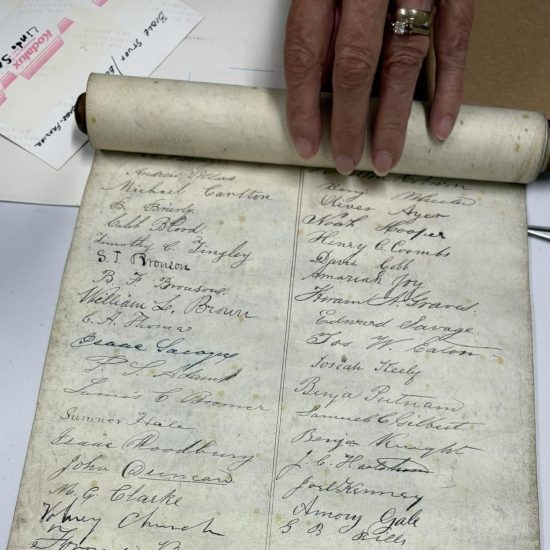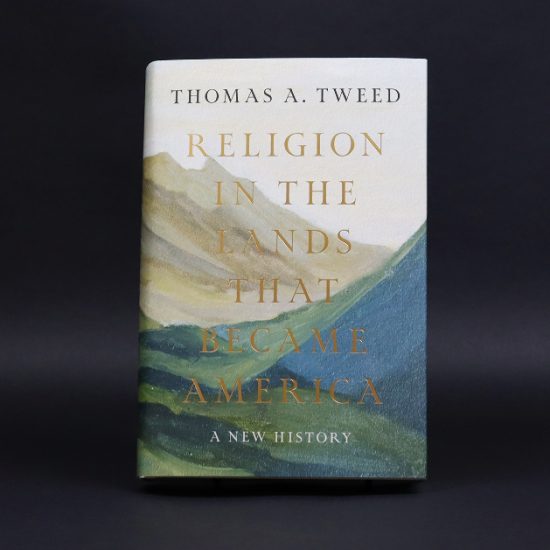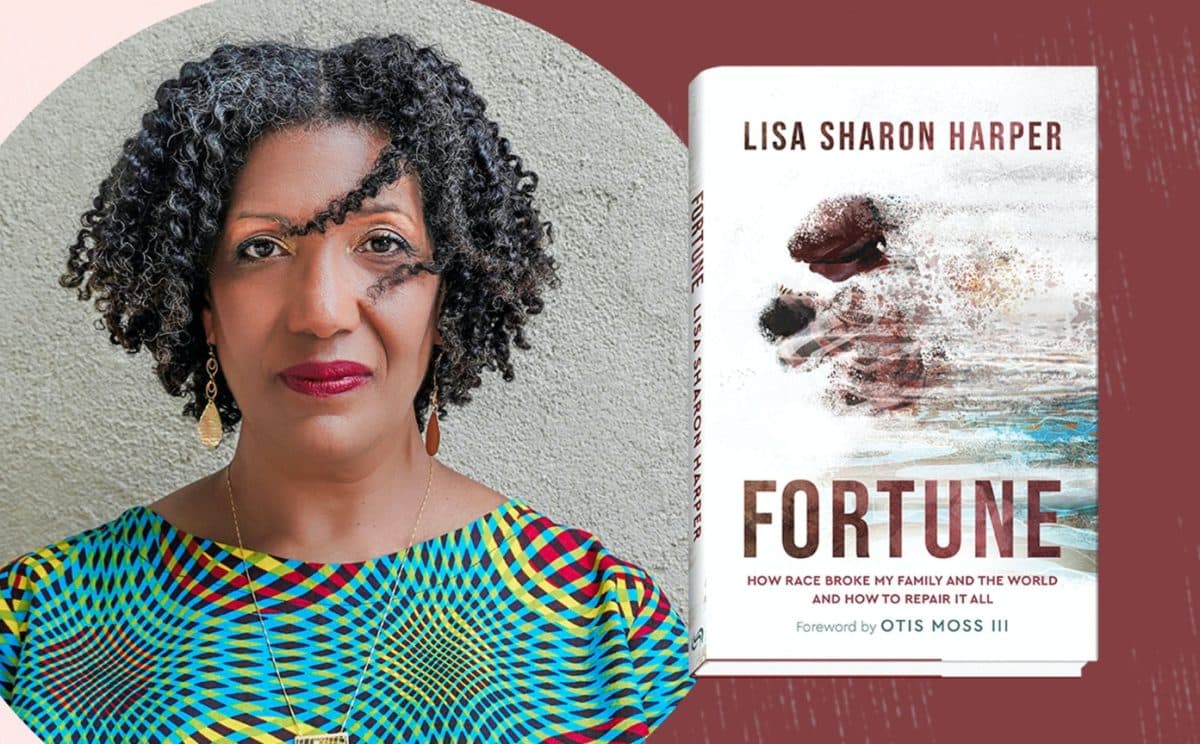
I thought I knew Lisa Sharon Harper. An inspiring leader devoted to engaging Christians in the work of social and racial justice, she and I spent several years working together in Washington, D.C. We shared meals, traveled to conferences, and collaborated on countless projects. But after reading her new memoir Fortune: How Race Broke My Family and the World — and How to Repair it All, I felt like I met a whole new person.
Part of that is my fault. Caught up in the urgency of work, back then I was often guilty of failing to ask colleagues about the rest of their lives. But at that time Lisa was also just beginning to unpack the details of the story she tells in the book.
Fortune is remarkable in a number of ways. Through in-depth research of her own family history, Lisa uses her lineage to map our nation’s long struggle with the sin of racism. From the genocide of indigenous populations to the enslavement of Black people to the continued subjugation under Jim Crow, the ugly account is all there. Yet, by narrating the story through her lineage, Lisa refuses to let the reader observe what unfolds at a distance. She makes it feel personal because, of course, it was.
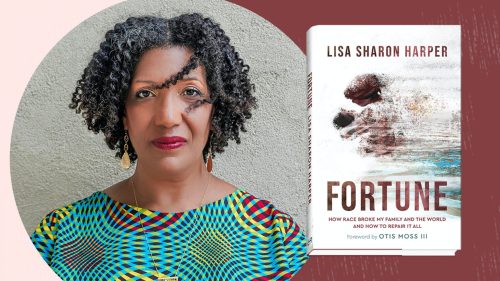
“From the beginning, our nation has bent, twisted, and buried truth in service to European, then White, supremacy,” she wrote. “It has hidden its addiction to human hierarchy — the supremacy of White maleness and pure power”
Lisa knows this is true not only from studying U.S. history but also by tracing it through her family tree. While the national and family history sections of the book are revelatory, Lisa uses the history to guide the reader on a path that ends at a moment of prophetic challenge. Given all that happened in this country and in her family, what is the appropriate response?
Lamentably, we have not collectively understood and wrestled with this history. Whether wanting to avoid the pain of having our consciences seared or blinded by those cynically telling different narratives because they benefit from the status quo, few are initially eager to investigate the tragedy of the past in the way Lisa does. Still, she argues we must.
“There is a narrative gap in our nation,” she wrote. “Wide is the distance between the stories we tell about ourselves and the actual truth of how we got here and who we are. The narrative gap also represents the yawning divide between disparate public narratives of our common story and what it will take to make things right.”
Lisa asserts a collective moral duty to close this gap. As believers in truth, followers of Jesus should not be afraid of where it leads. As citizens of a democracy, our common life together will never be authentic and equitable until truth is shared. Moreover, we cannot atone for the mistakes of the past until they are acknowledged in the present.
Lisa’s remedy is stark: repentance must involve reparations. Because of theft of land and labor, the flourishing of non-White peoples in the U.S. has been intentionally stymied for the benefit of the dominant race. It’s demonstrated by statistics and revealed in family stories.

“Human hierarchies of belonging broke America to the bone through the establishment of inequitable dominion — disparate capacities to exercise agency and impact the world,” she wrote. “Therefore the process of repair matters as much as the intent and the amount of restitution. The process must recognize, engage, and submit to the agency of the broken ones.”
That’s the invitation Lisa extends. Once you’ve digested our collective saga through her particular story, the fractures cannot be left unaddressed. The question is whether conversations will lead to actions that heal or inaction that perpetuates the pain. Lisa is encouraging us all to be brave in honestly assessing where we have been and using that to guide where we need to go politically, morally, and spiritually.
Few of us would dare to write this book, taking the time to publicly unearth our familial past to chart the brokenness of a nation. That makes Lisa’s offering both courageous and valuable. It’s a story that needed to be told, which makes this memoir a gift to both Christ’s Church and our country.
So, challenge yourself by picking up Lisa Sharon Harper’s Fortune. And you can learn more about Lisa and Fortune by listening to her interview on Dangerous Dogma.

